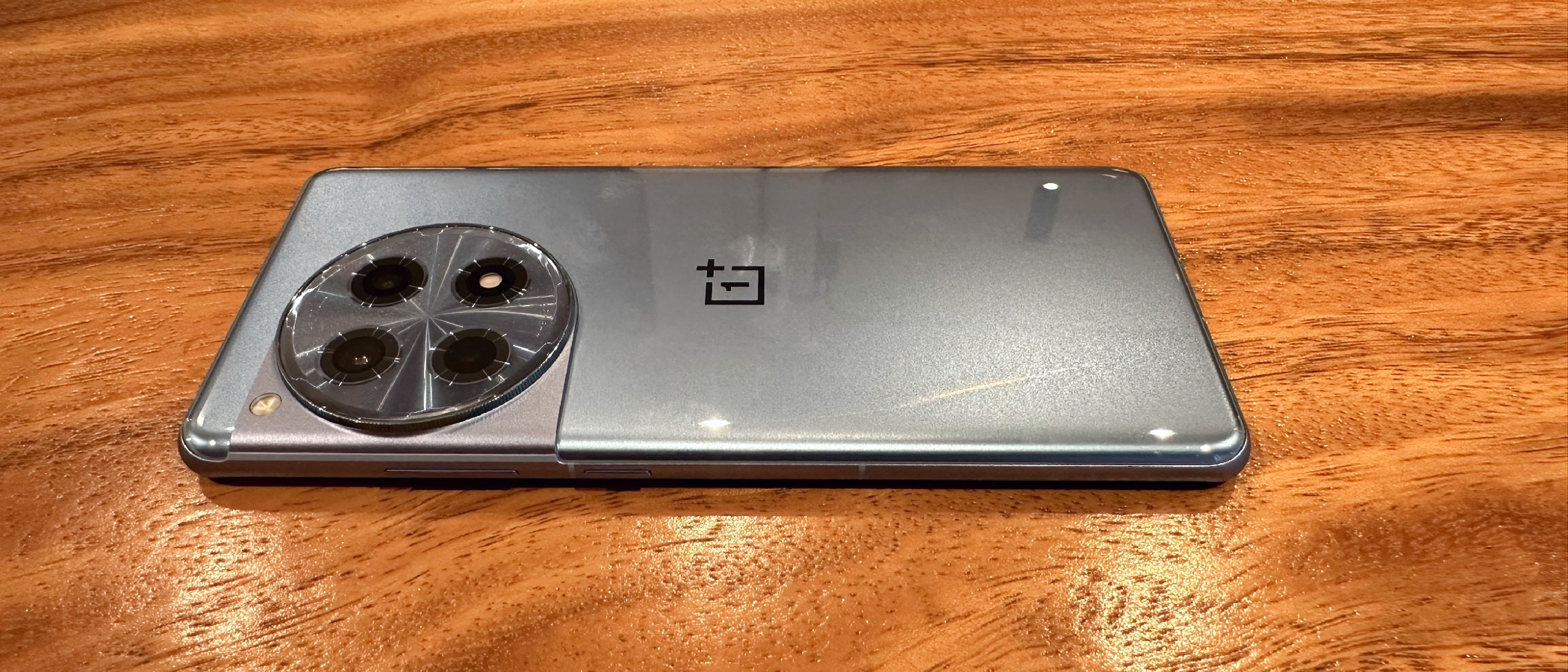
Price: $599
OS: OxygenOS (Android 14)
Display: 6.78-inch AMOLED ProXDR Display with LTPO 4.0
CPU: Qualcomm Snapdragon 8 Gen 2
RAM: 16GB
Rear cameras: 50MP ƒ/1.8 24mm equivalent main camera, 8MP ƒ/2.2 112º ultra wide angle, 2MP macro lens
Front camera: 16MP ƒ/2.4 24mm equivalent fixed focus
Storage: 256GB
Battery: 5500mAh (120Hz); (60Hz)
Size: 6.43 x 2.96 x 0.34 inches
Weight: 7.3 ounces
OnePlus has decided to rejoin the “multi-phone flagship” race with Apple, Samsung, and Google by launching two versions of the 12 in rapid succession. The OnePlus 12 is the fully-fledged flagship and the OnePlus 12R is the slightly more affordable version. Although, the OnePlus 12 is already the budget flagship of phones.
There is something a bit silly to be said about a budget version of the already budget flagship OnePlus 12, but the 12R has so many good features that it doesn’t feel like a budget phone. Sure, it doesn’t have the latest Qualcomm Snapdragon 8 Gen 3 processor, but you do have a triple camera array on the rear, a 6.7-inch AMOLED display, and impressive battery life. All for a starting price of $499. It is really hard to beat that.
So it's no surprise that the OnePlus 12R is now an easy contender for our best phones and best budget phones, but can it unseat the Google Pixel 7a as our top choice on either?
OnePlus 12R: Pricing and configuration
The OnePlus 12R starts at $499 with the Qualcomm Snapdragon 8 Gen 2 CPU, a 6.78-inch AMOLED ProXDR Display with LTPO 4.0, a triple rear camera array (50MP ƒ/1.8 24mm equivalent main camera, 8MP ƒ/2.2 112º ultra wide angle, 2MP megapixel macro lens) and a 16MP ƒ/2.4 24mm equivalent fixed focus front-facing camera, 8GB of RAM, and 128GB of SSD storage.
The unit we reviewed was the upgraded $599 model with 16GB of RAM and 256GB of storage.
OnePlus 12R: Design
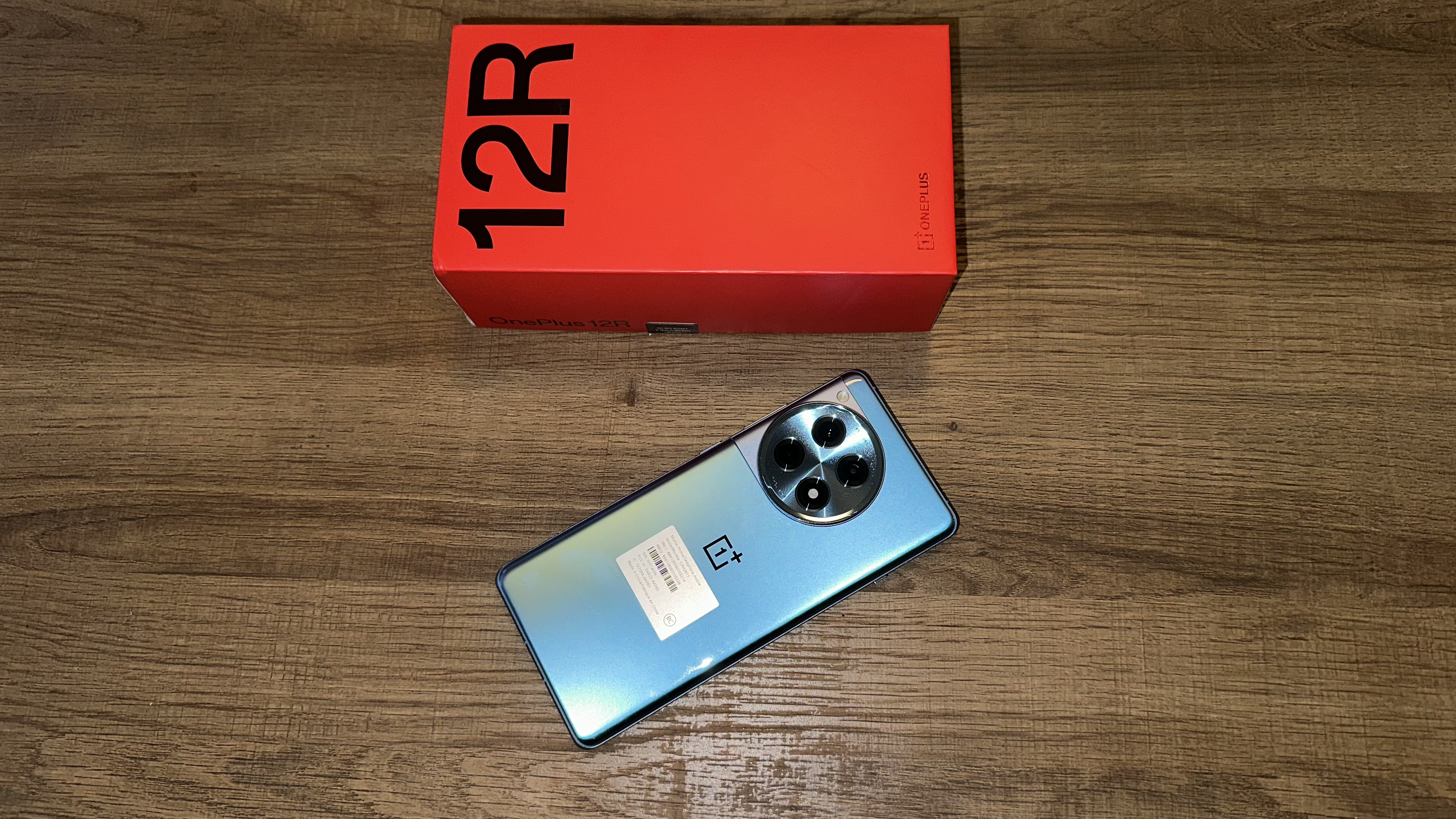
The OnePlus 12R comes in two colors, Iron Gray and Cool Blue. The elegant, minimalist design features OnePlus’s circular triple camera array on the back, two buttons on the right side, a mute/vibrate slider on the left, and a SIM tray on the bottom next to the USB-C port.
At 7.3 ounces, the phone itself is pretty light, though the camera array at the top corner does make it feel a bit top-heavy. But that’s a problem with just about every smartphone these days, so I hardly noticed it after years of using an iPhone 11 Pro. It is a bit heavier than the Google Pixel 8 which weighs 6.6 ounces, while it is certainly chunkier than the Apple iPhone 15 (6.02 ounces) and the Samsung Galaxy S23 (5.93 ounces). Of course, only the Galaxy S23 comes with a triple-camera array on the back of the phone, though it is impressive to note the S23 is the lightest of the four phones in question.
My one, and only, complaint with the 12R is the rounded edges. At this point, smartphones with rounded edges just feel dated and look terrible on some apps because they’re built with a flat-form display in mind. Chat apps like Slack or Discord and e-reader apps like Nook or Play Books seem to suffer from this the most. While most e-reader apps will let you adjust margin settings, if you have the margins set to the max the text will get close to the edges and suffer from a bit of blur.
OnePlus 12R: Display
The OnePlus 12R display looks absolutely gorgeous while web surfing and watching videos. You have three screen color modes and can even set your own screen color temperature to make the display look as good to your eyes as possible. Even with the color settings set to their default, “David Attenborough: A Life on Our Planet” was crisp, vibrant, and stunning. The underwater footage of dolphins early in the doc were particularly impressive as underwater video can often appear as a blue blur, but the OnePlus 12R provided more than enough detail to see the school of dolphins in sharp detail. The trailer for “The Beekeeper” was similarly gorgeous, with jaw-dropping contrast and vivid color.
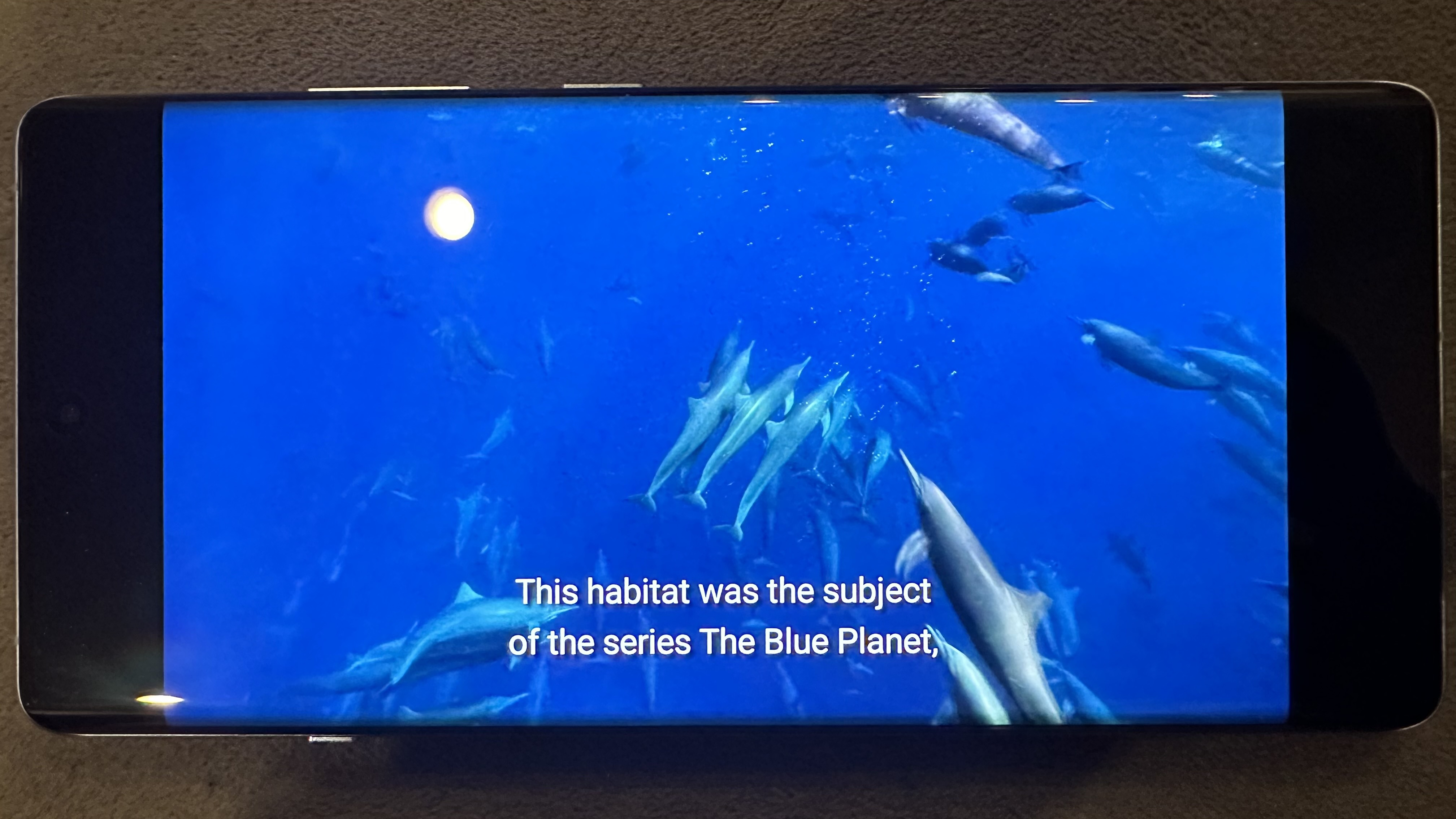
With a 120Hz maximum refresh rate, the OnePlus 12R’s display is crisp and smooth on most content. You can set the display to a standard 60Hz, an adaptive “high” rate that will ratchet up to 120Hz for specific content, or even set different settings based on the app you’re using at the moment. So, if you don’t want to have to manually toggle the refresh rate when switching between gaming, doom scrolling on social media, and web browsing, the phone can do it for you with app-specific refresh rates that can be set to 60Hz, 90Hz, or 120Hz.
In terms of color accuracy, the OnePlus 12R covered 112.3% of the sRGB color space and 80.2% of the DCI-P3 color gamut with a Delta-E accuracy of 0.21 with the display set to Natural. These display scores are pretty comparable to the iPhone 15, which had a Delta-E of 0.18 and covered nearly the same amount of the sRGB (114.4%) and DCI-P3 (81.1%) color spaces. The Samsung Galaxy S23, set to Natural, may have been a bit less accurate (Delta-E of 0.24) but covered much more of the sRGB (128.6%) and DCI-P3 (91.1%) color gamuts.The Google Pixel 8 was more accurate with its display set to Natural, with a Delta-E of 0.15, though it covered less of the sRGB (108.3%) and DCI-P3 (76.7%) color spaces.
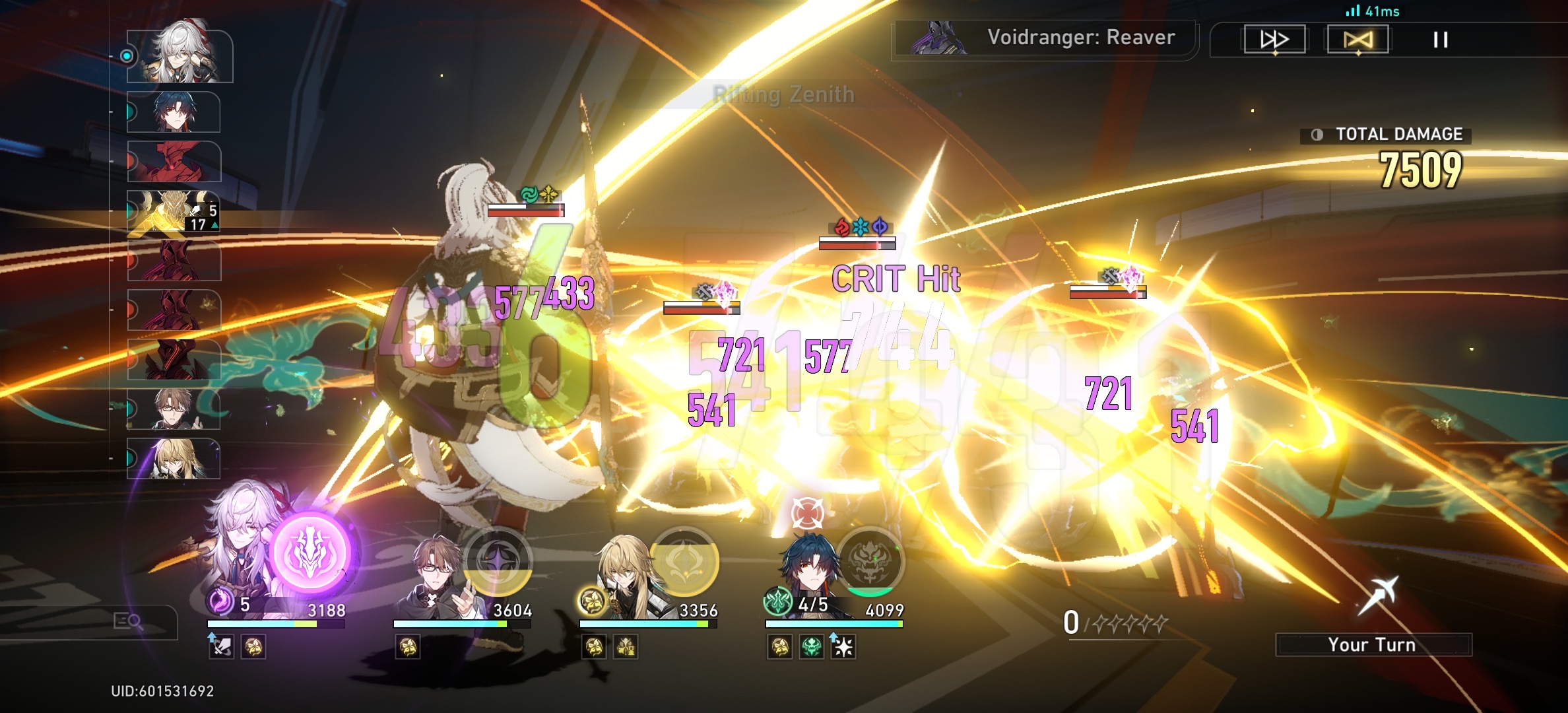
As for brightness, our labs struggled to find stable and repeatable maximum brightness numbers and are working with OnePlus to get the most accurate results possible. For now, we have reported our best most consistent brightness numbers.
Our labs have reported a maximum brightness of 1,133 nits which is more than enough to keep up with sunny days. This is pretty competitive brightness as even the iPhone 15 (957 nits) and Samsung Galaxy S23 (1,002 nits) fall behind the OnePlus 12R’s 1,008 nit max while the Google Pixel 8 (1,224 nits) is brighter.
As for HDR brightness, the OnePlus 12R hit a maximum of 754 nits which is far from great but is certainly enough for videos to look fantastic. However, that 754 nits lags well behind the competition as the iPhone 15 (1,401 nits), Samsung Galaxy S23 (1,340 nits), and Google Pixel 8 (1,349 nits) all leave the 12R in the dust.
OnePlus claims a max of 4,100 nits on the 12R, but to achieve that takes a set of very specific circumstances that are difficult to replicate even in our lab.
OnePlus 12R: Audio

You wouldn’t expect a budget phone to have some truly slick audio but the OnePlus 12R delivers crisp highs, defined mids, and a nearly full range of lows thanks to its dual stereo speakers and Dolby Atmos support. Listening to the “Final Fantasy XIV: Endwalker” title song “Footfalls” was an absolute treat given the wide range of musical styles pastiched into the mostly orchestral theme, while As I Lay Dying’s “My Own Grave” showed off the 12R’s capability to keep up with driving bass and drums.
While some of the bass got a bit tinny on both songs, it honestly wasn’t too bad. Just slap the OnePlus 12R in a red solo cup and you’ve got a pretty solid party speaker for no extra cost. It certainly has the volume output for it.
OnePlus 12R: Cameras
Getting a triple camera array on a budget phone is an achievement, though that third lens is a macro lens rather than the traditional telephoto which may not be the best fit for all users. Samsung’s Galaxy S23 is our only competitor that also houses three rear cameras, but Samsung's wide, ultrawide, and telephoto array comes with a much steeper $699 starting price. The newly released Galaxy S24 also has three cameras and starts at $799 — a far cry from the OnePlus 12R’s base price.
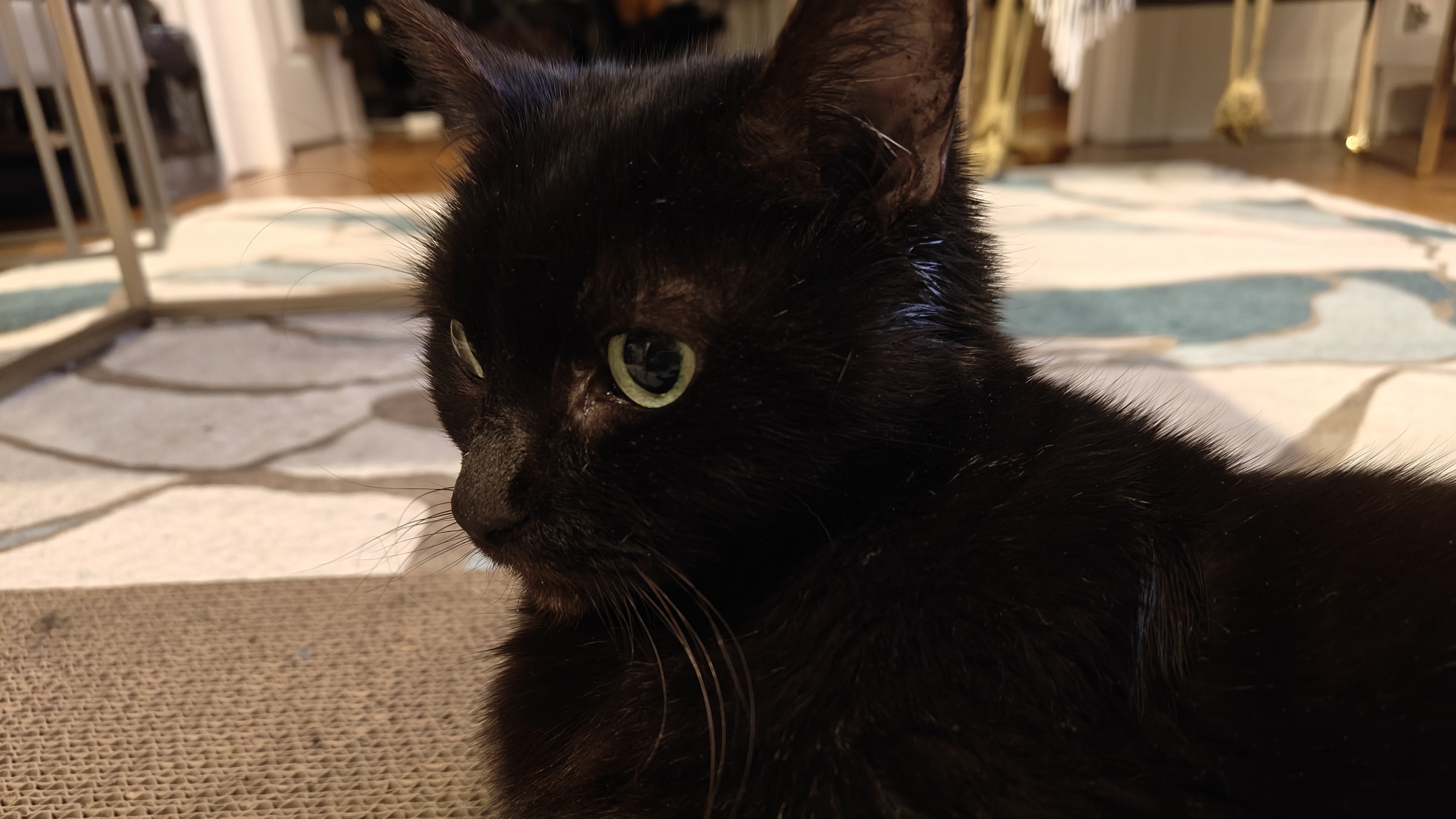
And that said, those three cameras do pack a solid punch. I highly recommend them for cat photos. With a 50MP ƒ/1.8 24mm equivalent main camera, 8MP ƒ/2.2 112º ultra-wide angle, and 2MP macro lens you have a camera for any situation.

The cameras do well during the day, capturing vibrant colors, deep shadows, and crisp details with only minimal focus fiddling. Their night photography is a bit less impressive, but it’s still nothing to sneeze at. As long as you watch your light sources properly, you shouldn't have too much trouble getting a decent exposure. Considering this is a $500 phone, it's hard to argue with the camera performance.


I will say, the macro lens is my personal favorite as you can get some incredibly slick close-up photos. The level of detail captured by the macro is pretty impressive and you won't need to invest in a pricey DSLR or mirrorless camera setup if you want to start getting into macro photography.

As for the selfie cam, the 16MP ƒ/2.4, 24mm equivalent, fixed-focus, front-facing camera looks blurry and dim in comparison to the rear cameras which is pretty typical of most smartphones. If you need to take a high-quality selfie, resorting to a mirrored case or mirror pop-socket will allow you to use the rear-facing camera array for professional-quality selfies. If that’s still not enough, you can always throw down some extra money for the Insta360 Flow phone gimbal for even better Selfie quality.
OnePlus 12R: Performance
When it comes to performance, the Qualcomm Snapdragon 8 Gen 2 is a pretty bulletproof CPU. Having 16GB of RAM on our testing unit certainly helped as most comparable phones only have 6GB to 8GB of RAM.
I did my best to push the 12R to its limits, pulling up 20 Chrome tabs, “Genshin Impact,” “Honkai: Star Rail,” YouTube, Netflix, Discord, Signal, and had no trouble getting TikTok to play smoothly despite everything else clogging up the background.
Considering our lab tests, I’m not surprised by how well the OnePlus 12R held up under my tab onslaught. On Geekbench 6.2, the OnePlus 12R averaged a single-core score of 1,553 and a multicore score of 5,135. This was definitely competitive against the Pixel 8 (SC: 1,569, MC:3,744) and iPhone 15 (SC: 2,518, MC: 6,179). The Galaxy S23 (SC: 1,881, MC:4,972) was tested using Geekbench 6.0 so we cannot directly compare Geekbench scores as 6.0 and 6.2 are not fully comparable. But these scores do put the OnePlus 12R pretty firmly in the middle of the pack on a variety of computing tasks.
On our Adobe Premiere Rush video encoding test, the OnePlus 12R averaged 1:09 for converting a 4K video into a 1080p/30 FPS format. This was well behind the iPhone 15 (0:25) and Galaxy S23 (0:39) but was just a bit faster than the Pixel 8 (1:13).
As for JetStream 2, a JavaScript and WebAssembly benchmark, the OnePlus 12R seemed to have the same issues as the OnePlus Open as it came in well below expectations at 23.877. The iPhone 15 (283.4), Pixel 8 (118.4), and Galaxy S23 (179.6) all absolutely decimated the OnePlus 12R. Based on its specs, the OnePlus 12R should benchmark close to the OnePlus 11 on JetStream 2.
Much like with the OnePlus Open, I re-ran JetStream 2 using the Brave browser and saw a performance boost (89.3), so it seems like something about the way OnePlus’s Oxygen OS variant of Android handles Chrome doesn’t seem to be working correctly. In day-to-day tasks, this isn’t an issue you’re likely to face which is the good news.
OnePlus 12R: Graphics
The OnePlus 12R comes with a separate gaming mode to get the absolute best gaming experience out of your battery. You can swap between low power, balanced, and pro gaming modes to boost performance or save battery depending on how close you are to a power outlet.
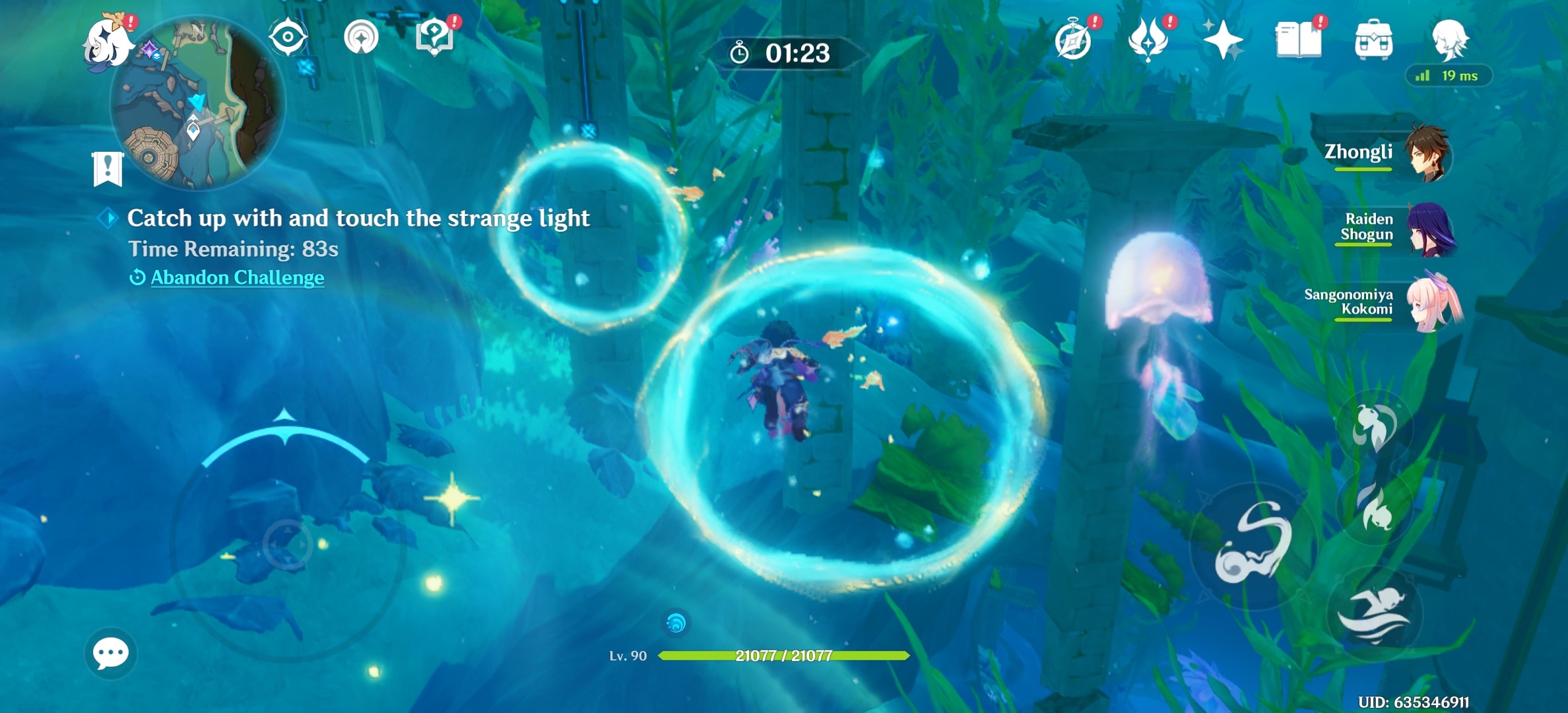
I decided to test the graphic capabilities of the 12R by booting up “Genshin Impact” and “Honkai: Star Rail,” as I am far too familiar with Hoyoverse’s games and can spot any visual degradation pretty quickly. While the 12R managed to keep a solid 30FPS on “Genshin Impact,” it did struggle a bit, and never really seemed to get much better. Not the best, but solid quality for a budget phone.
On our synthetic lab tests, the 12R Maxed out 3D Mark’s Wild Life benchmark, with a score of 14,103 (84.45 FPS) average on the offscreen Wild Life Unlimited variant. The iPhone 15 and Galaxy S23 also maxed out 3D Mark Wild Life while the Pixel 8 came close with a score of 8,578 (51.37 FPS).
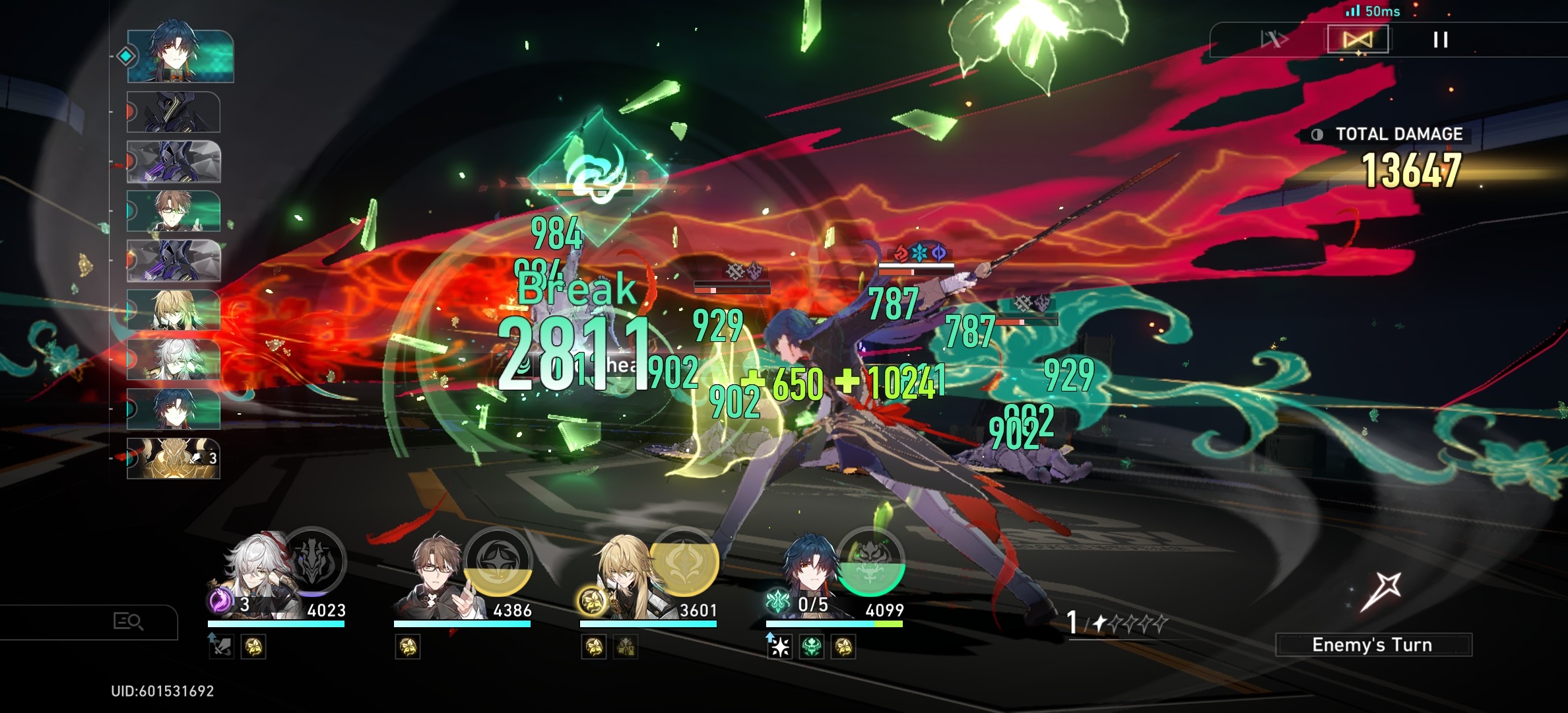
The performance differences were highlighted a bit better on the offscreen Wild Life Unlimited variant, with the 12R coming solidly in the middle of the pack with the iPhone 15 (12,030, 72.07 FPS) and Pixel 9 (9,008, 53.97 FPS) falling below the 12R while the Galaxy S23 took the top spot (14,588, 87.33 FPS).
On the higher end, the 12R showed some performance drag with a score of 3,708 (22.2 FPS) on Wild Life Extreme. With a more mid-range test like GPUScore: The Expedition, the 12R still struggled to maintain 30FPS with an average score of 3,831 (38.3 FPS).
OnePlus 12R: Battery and charging
The OnePlus 12R has some of the best fast charging rates we’ve seen in a while. Using the provided 80W SUPERVOOC power adapter, we saw the phone go from dead to 57% charged in just 15 minutes, while it topped out at 98% by the 30-minute mark. So there’s almost no battery throttling when charging from empty, which is incredibly convenient.
Also convenient is having the 80W power adapter provided alongside the phone, which is more than we can say for most brands at this point. It shouldn’t be a selling point, but when most brands want to charge an additional $20+ for a 20-25W charger, getting an 80W super charger in the box with the phone for no additional cost is incredible.

As for the battery, in my hands-on testing, I was easily able to go a full day of web browsing, chatting, gaming, and photographing on the 5500mAh battery with life to spare. Granted I didn’t have the screen on and web-surfing the entire time, so it’s more reflective of my day-to-day and doesn’t make a great comparison for battery life.
So I turned to our usual battery test for a good comparison point. The Laptop Mag battery test sets all phones to 150 nits and continuously surfs through a series of web pages while running exclusively on cell data. The OnePlus 12R managed to last 18 hours and 37 minutes at 120Hz and 19 hours and 6 minutes at 60Hz. Which is far better than the iPhone 15 (11:05 at 60Hz), Pixel 8 (9:43 at 120Hz, 9:59 at 60Hz ), and Galaxy S23 (10:27 at 120Hz, 11:20 at 60Hz).
OnePlus 12R: Software
The OnePlus 12R ships with Oxygen OS, an Android 14 variant. It is only a light skin over the base Android OS but it does keep things simple and user-friendly. If you have to have an Android overlay, it is one of the better ones because it doesn’t add too much extra software or complication.
You still have access to Google’s full app suite along with OnePlus’s O Relax, OnePlus Store, Community, IR Remote, and Clone Phone applications. The Clone Phone app is probably the unsung hero of the OnePlus app suite as it makes transferring data between other Android phones easy and can even copy settings and apps from an iPhone. Favorite features like Zen Space, Quick Launch, Smart Sidebar, and Private Safe 2.0 are also in the OnePlus 12R toolkit.
If you’re worried about security, the OnePlus 12R comes with an on-screen fingerprint sensor, password, and facial recognition for unlocking your phone. So whatever way you prefer to be recognized, the 12R can help. The facial recognition is easy to set up and the fingerprint scanner is quick to respond despite being an on-screen scanner. In fact, setting up all three is easy and gives you the ability to unlock your phone no matter what else you’re up to.
OnePlus currently guarantees software support for the OnePlus 12R for three years of software updates and four years of security updates. This is one year less than the OnePlus 12 which gets four years of software updates and five years of security updates guaranteed.
Bottom line
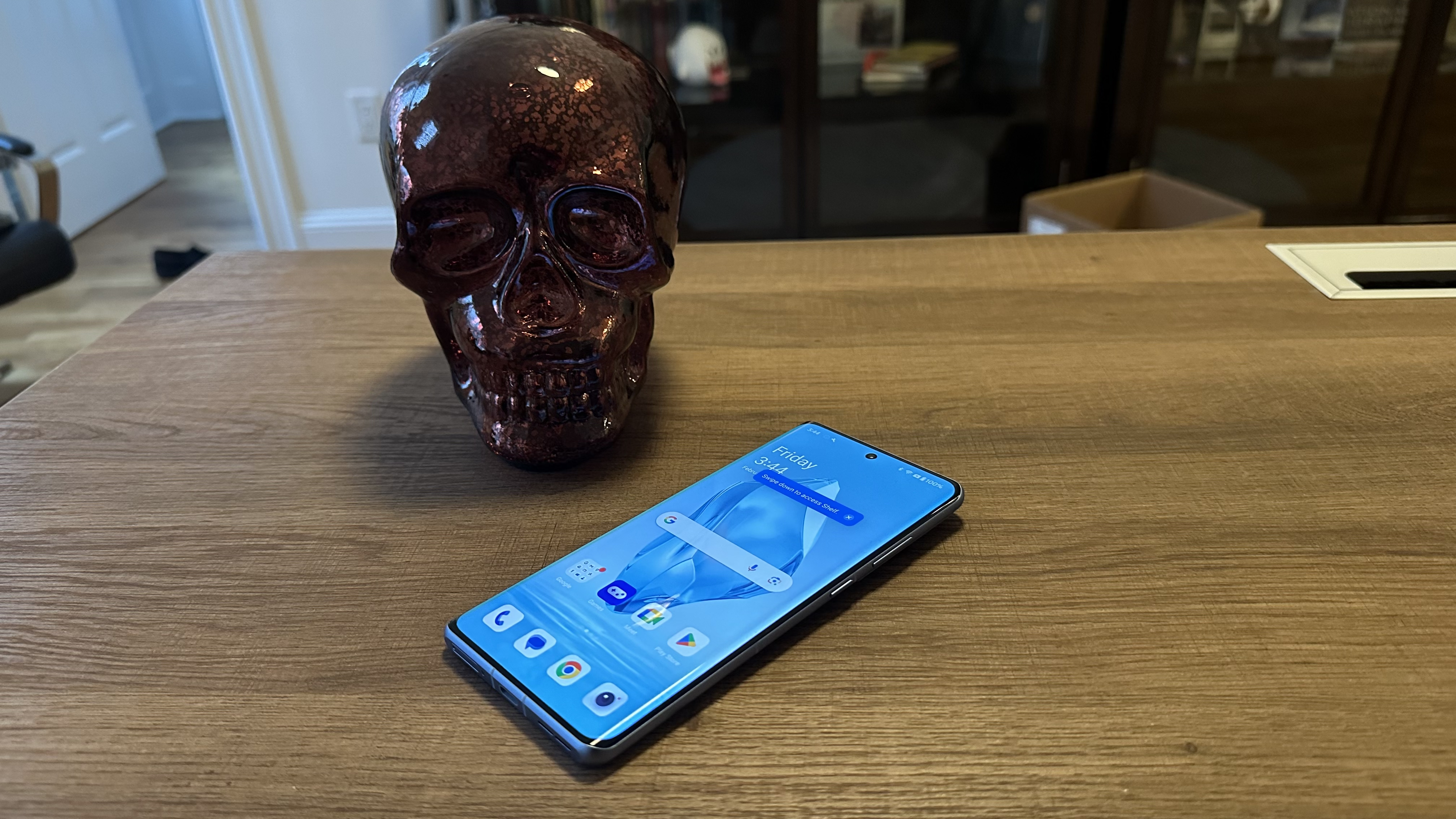
At $499 starting and $599 max price, the OnePlus 12R is an incredible bargain. You get nearly the same flagship experience as the OnePlus 12 with performance comparable to the OnePlus 11, iPhone 15, Pixel 8, and Galaxy S23 for a significantly lower price. The OnePlus 11, iPhone 15, and Pixel 8 are all $799 while the OnePlus 12 is $899. The Galaxy S23 is the closest in price at $699 but that is primarily because the S24 is officially available starting at $799. So you really can’t beat the 12R when it comes to affordability.
It also has three fantastic rear cameras, a decent front-facing camera, crisp audio, and a buttery smooth 120Hz display. It ships with an 80W fast charger and has several display-optimizing features that the competition just doesn’t have.
If it weren’t for the rounded edge design, the OnePlus 12R would be the perfect phone. If you’re in the market for a new Android device or don’t mind switching from iOS for something with good performance and a lower price tag, there isn’t anything I’d recommend over it right now







